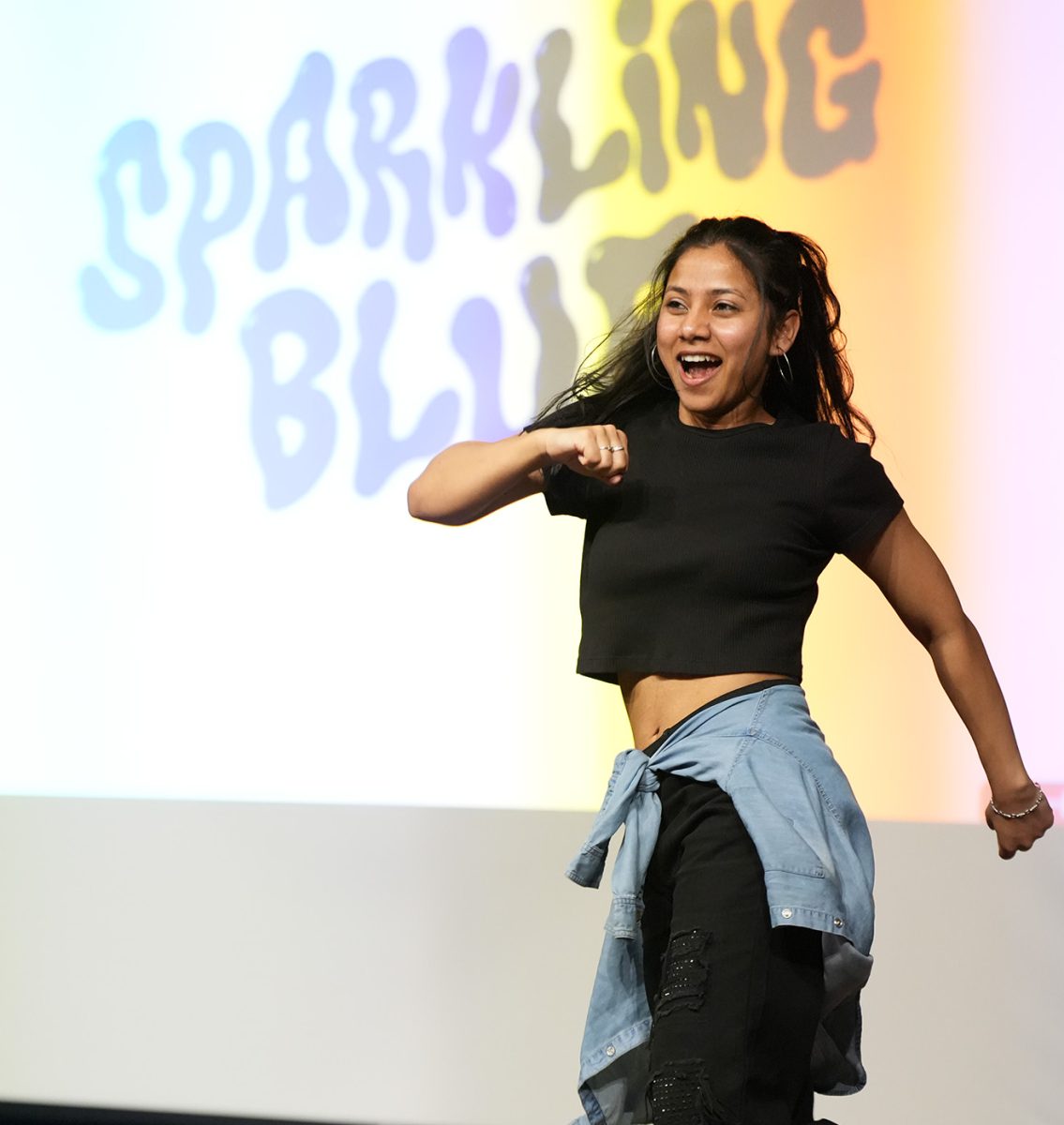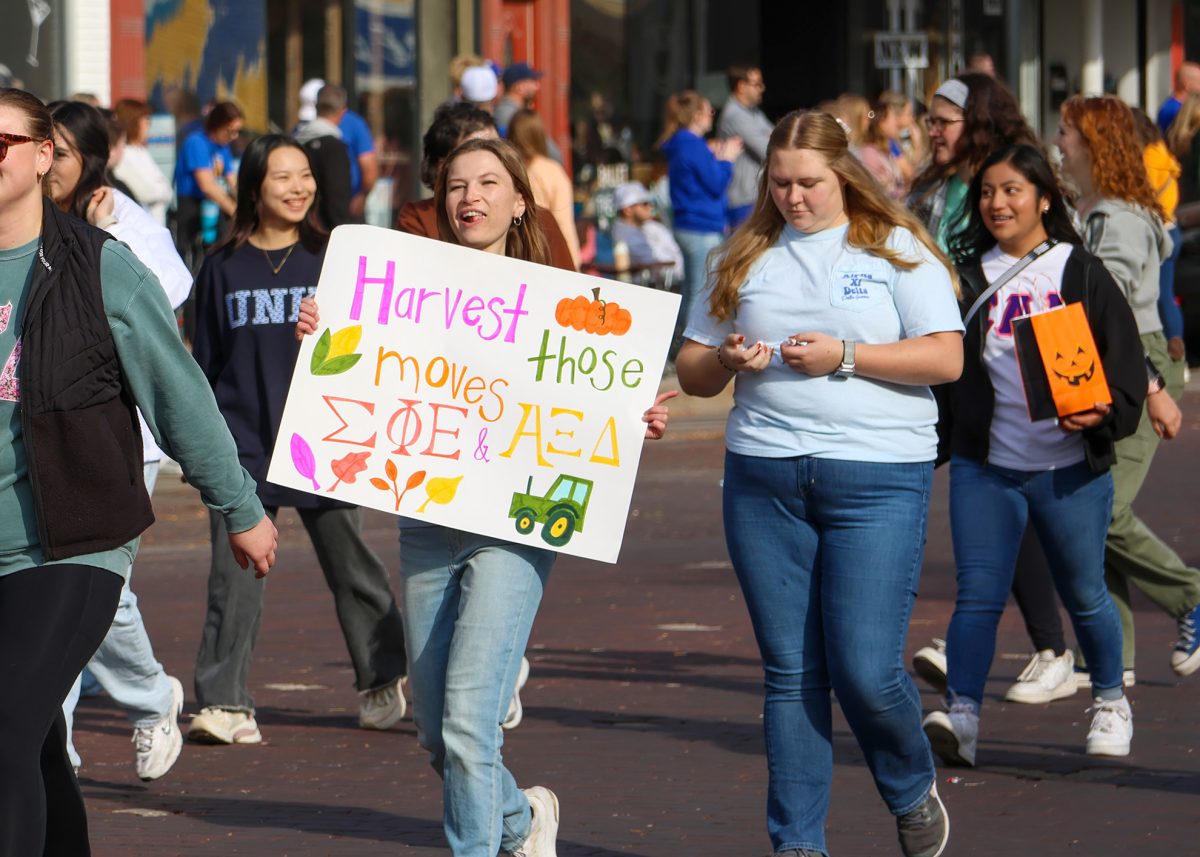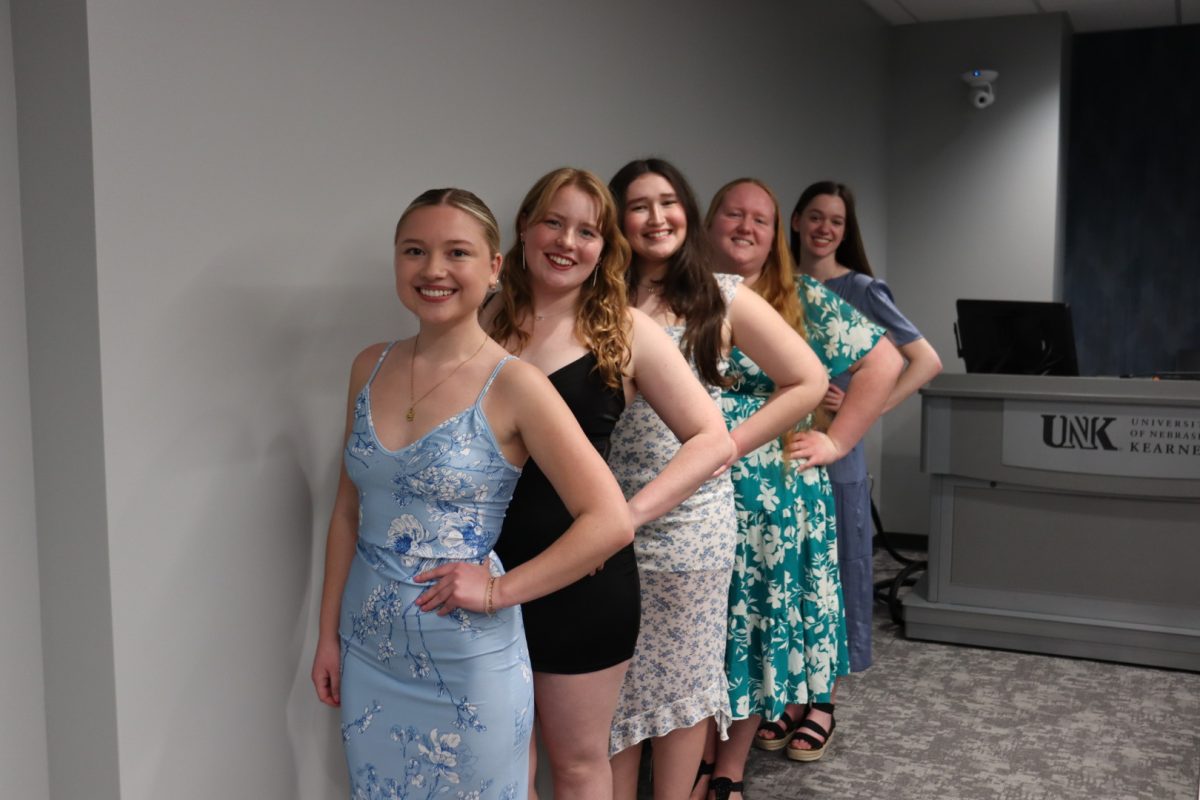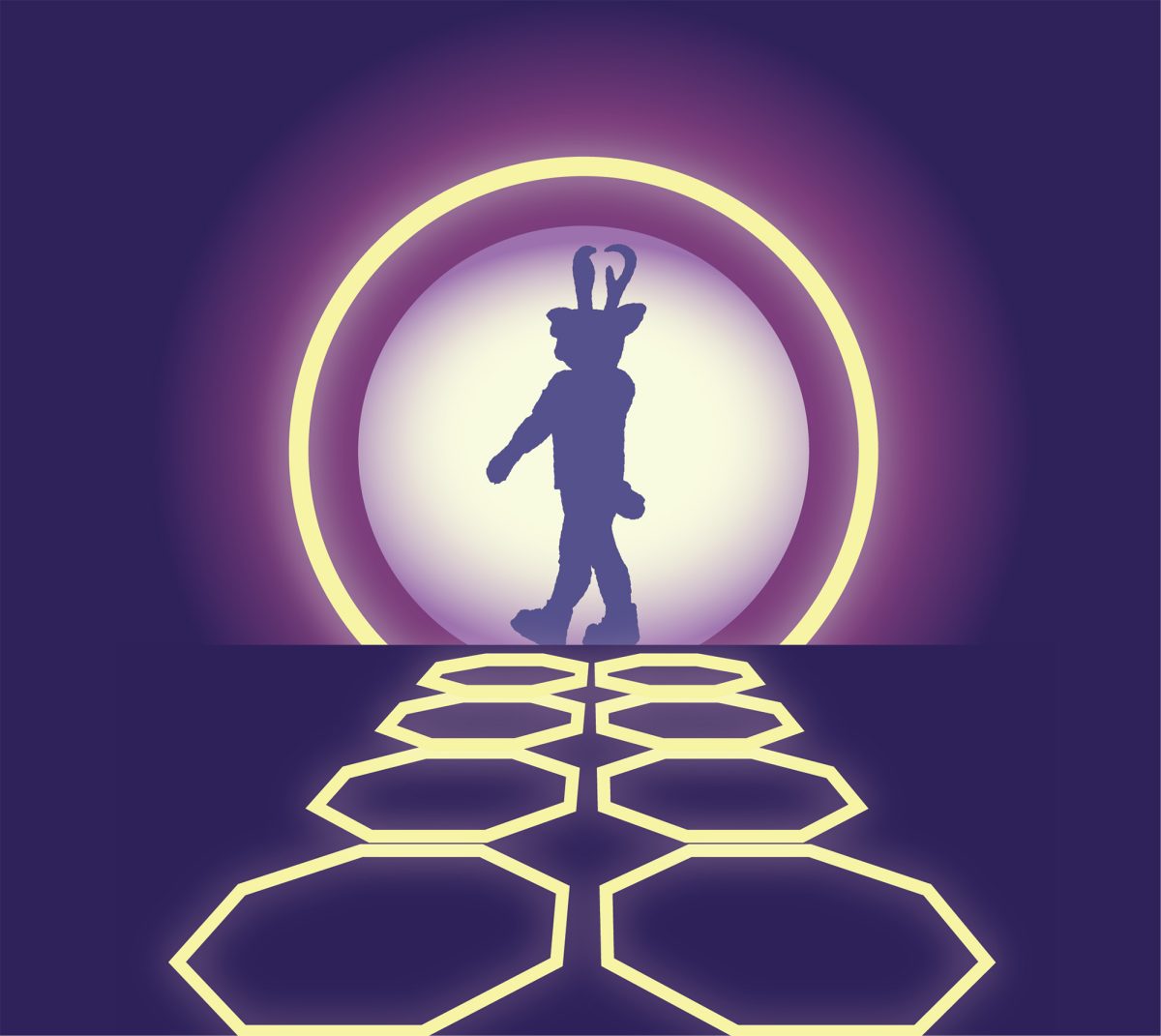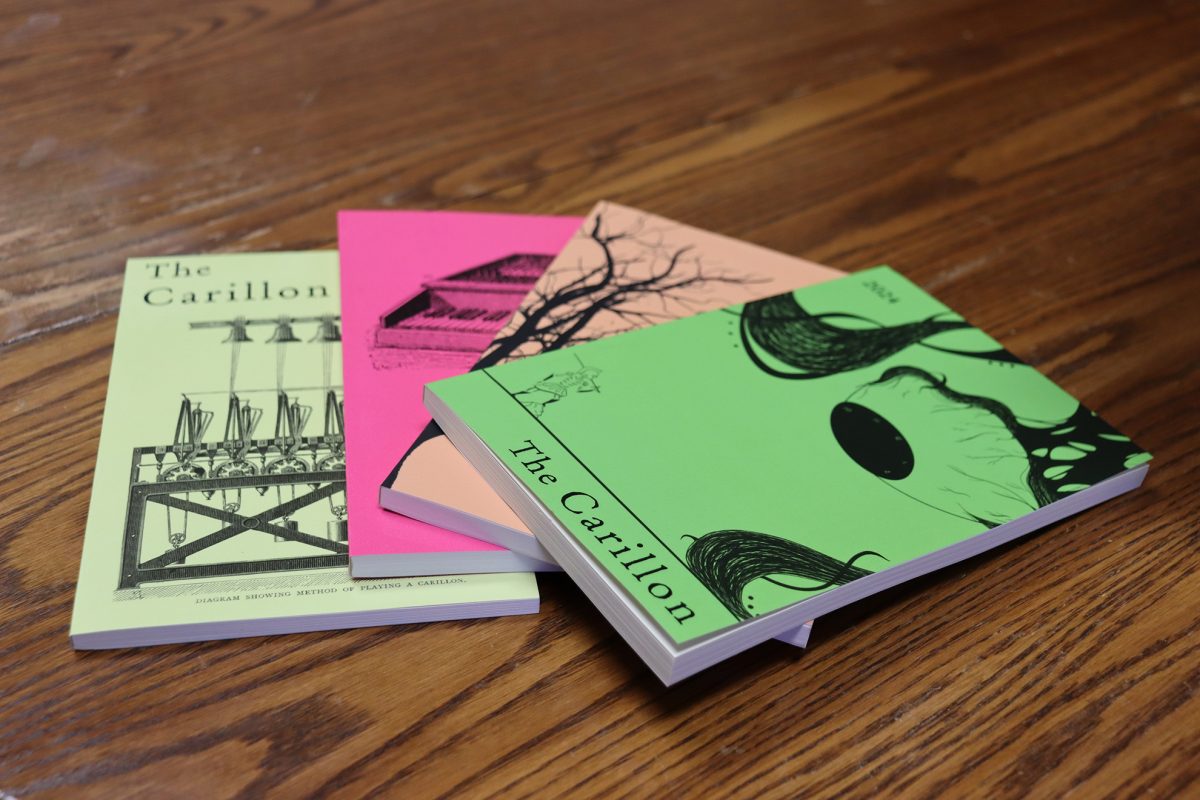Lizzy McAlpine, a musician in the realm of indie and singer-songwriter genres, has compiled her third studio album, “Older”, released on April 5th.
A very admirable quality about McAlpine is the resonation and relatability she holds in her songwriting. This album explores the fear of growing older with the juxtaposition of a reconciled regret. It is an album that encapsulates a coming-of-age feeling, trying to make sense of love, loss, choices and time. It’s about admitting and acknowledging wrongs that were made in a past relationship of hers. The album is layer upon layer of sounds that ground the artist to a vulnerable state of honesty.
McAlpine’s folk-pop tunes have always felt theatrical, and this is most definitely due to her background of being both a drama fan and collaborator. She also has an ability to infuse every song with a character.
McAlpine initially had the album finished and ready to release last August 2023, but something didn’t feel right in the final product. She decided to collaborate with singer-songwriter Ryan Beatty, an artist she was impressed with when it came to production techniques.
While listening to this album for the first time, the tracks felt extremely Beatty-inspired – most especially in the song “Staying.” This is due to the feelings that surround the song – it is peaceful, ethereal and comforting, like an embrace from a loved one. Her voice encapsulates what it feels like to tirelessly keep a relationship burning. After two weeks of revamping the compositions, McAlpine was finally proud of the recording results.
Her song, “The Elevator”, is the perfect way to begin an album. It brings in a light as a feather sound in order to allow for a soft landing into the artist’s dynamic collection of tracks. The production is completely stripped down in the beginning, allowing McAlpine’s voice to pierce through in all of its raw beauty. As the song extends, the energy intensifies, and I feel this is a direct definition of the album’s energy in full.
“Come Down Soon” is the second track and gives an illusion to the listener that the first song is still extending. This is a vivacious song to bump your head along to. The melody is very dynamic, jumping up and down with the background beats. It details how McAlpine is convinced that nothing that’s so incredibly good in her life is meant to last forever. She sings with the anticipatory feeling that disaster is about to strike before what’s good and right has time to begin. I think a lot of us can relate to the feeling of thinking good things will come to pass.
There is a very similar theme in the song “All Falls Down.” McAlpine says: “23 and a sold-out show, I am happy but I’ll probably cry after you go home.” When everything is right in your life, you are still allowed to feel wrong sometimes. It is true that feelings can be easily replaced by temporary distractions. The feelings never leave, they are merely hidden underneath, and they will come back to remind you of their imminent presence. In this sense, a sold-out show didn’t fix McAlpine’s feelings, she still felt sad even after achieving something quite remarkable. It’s important to recognize our feelings and make time for moments that will fulfill our soul, not just the ones that are big, flashy and validating. This will center us back to ourselves.
Life is so fleeting – feelings are so fleeting. The truth of all these things falls down on us and weighs heavy on our minds. How does one grow without running backward?
“March”, a track dedicated to McAlpine’s late father, also relates to how the past can come back to haunt us, and it is stripped down to an honest, yet grieving sound. McAlpine sings: “So far away, and then it hits you like it was yesterday.”
In the song, “Older”, McAlpine embodies the feeling of aging with understanding. With lines like “over and over, watch it all pass, mom’s getting older, I’m wanting it back”, the listener can feel McAlpine’s desperation to be able to take back the rapidity of time. She ends the track with the lines: “I wish I knew what the end is,” which connects back to McAlpine’s fear of mortality and growing up.
One element that has been recurrent in her artistry is her ability to compile aesthetic harmonies and riffs. She uses the strength of her voice to create a cacophony of dynamic blends. Her voice is well-honed in this craft, and it definitely comes to strengthen her work. To me, this skill was most pleasantly received in “Movie Star” and “Drunk, Running.” In lyrics like “I wanna change, I wanna grow” and “Someone ought to, hold you to your words”, I found myself singing along to McAlpine and stacking my own harmonies to match her melodies.
The last track I will mention, though I wish I could dive into them all, is “I Guess.” McAlpine sings: “Wish it was easy, I wish I knew, what I was doing, but I never do.” Who really knows what they’re doing? We are all just doing what we can to get by and survive. If we held on to the knowledge that everyone is struggling, maybe we could learn how to give each other more grace and compassion in this world. Our universe is already vast and confusing, why make connections and feelings the same?
The build and the release behind the compositional structure of her songs are made intentionally. McAlpine doesn’t feel the need to overproduce in order to gain virality; her main purpose in releasing her music is to be authentic, genuine and connective to her audience. I think after experiencing this album, the listener will come to find McAlpine’s purpose proven. As you listen, tears may fall down your face as the melody carries through to a willing ear.
As I reached the end of the album, I found myself thinking: Is it really over?



